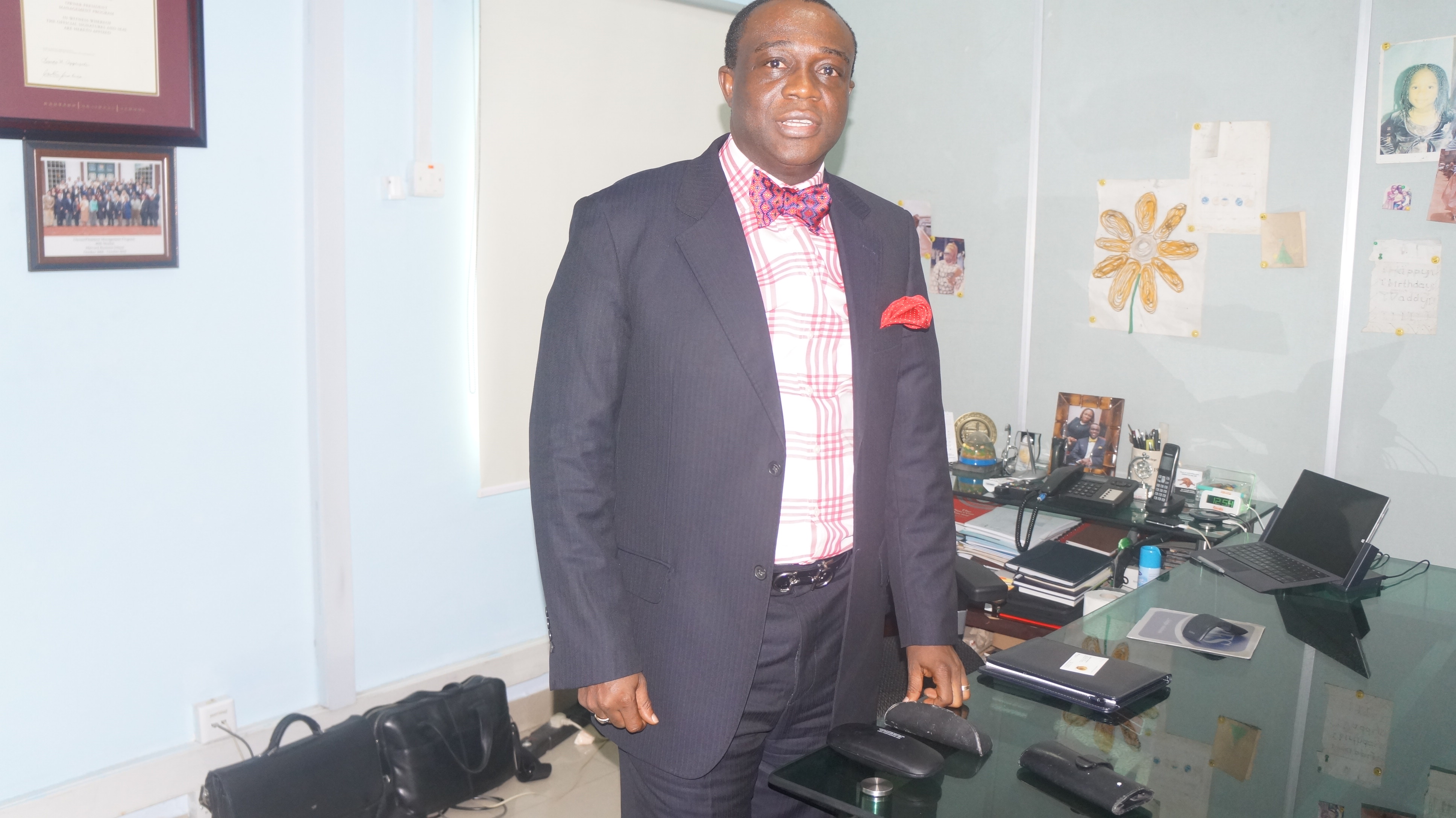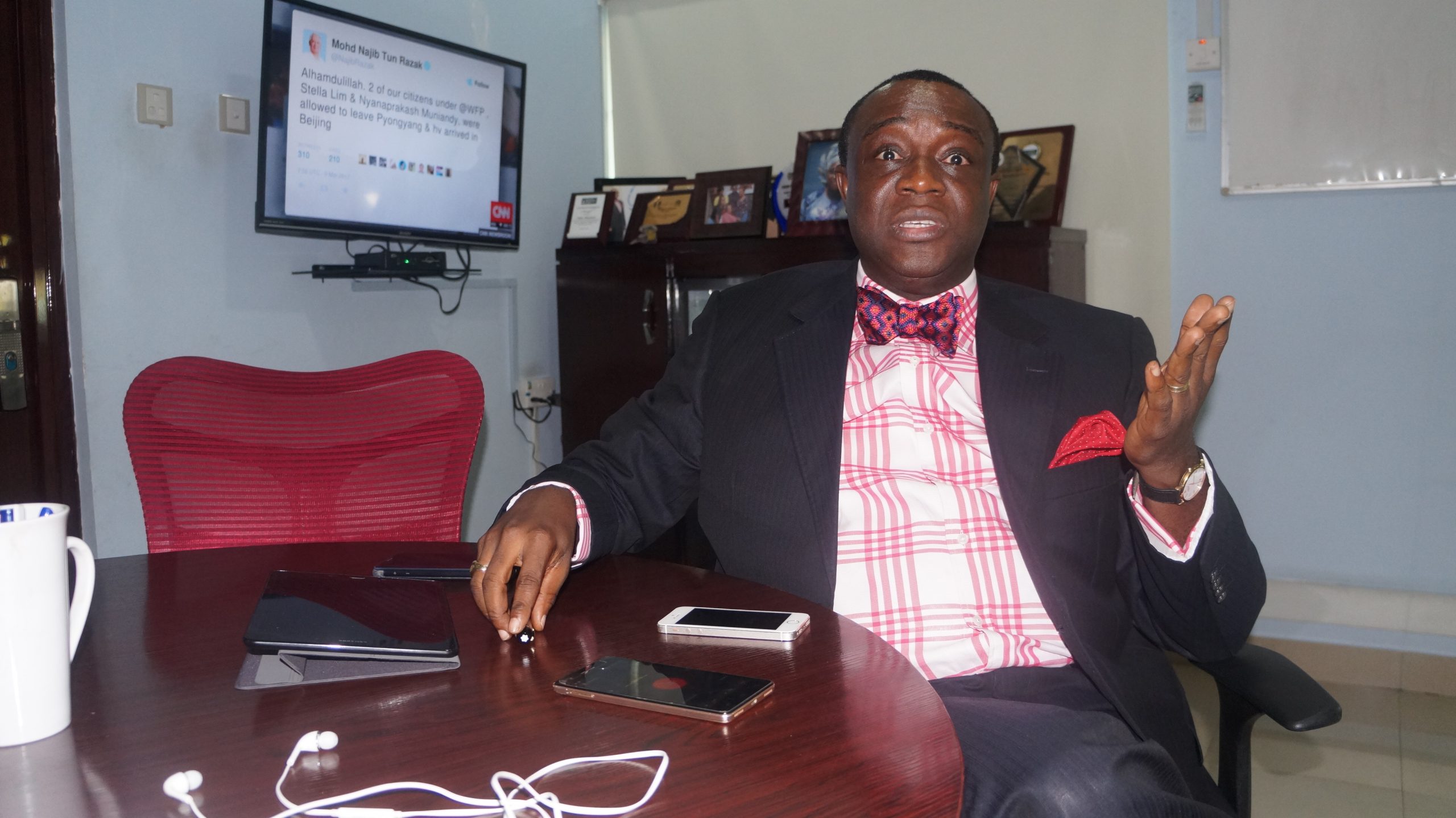Mr. Yele Okeremi, CEO of Precise Finacial Systems (PFS) Limited, an indigenous financial software development firm with footprints across Africa spoke with Anthony Nwosu and Tunde Amole of IT EDGE NEWS.NG. He spoke on the changing dynamics in the financial technology sector; why local content should be ingrained in policy thinking and implementation; and why business sustainability hinges on changing our values.
Do local software applications for the financial sector stand a chance against offshore solutions as virtually all Nigerian banks rely on foreign software?
The answer to that question is a yes. Whether local or foreign, what you are looking for in any software is a solution to a problem. The resilience or how good a software is being determined by functionality. And you have to ask what determines the capability or capacity of functionality? I always say it’s a game of intellect; it’s a game of knowledge and that of discipline, end of story. So asking if the Nigerian software can be compared with their global counterpart is not needed because over time, Nigerians have shown and demonstrated that they’re intelligent or even more intelligent compared to their counterparts in the West. There is a proven data for this, but the challenges we have is in the area of discipline. How disciplined are we as a people? Nigerians do not believe in the system and do not have faith in the system. People are too short termed in nature. What is required of us to do is to break this cycle of lack of faith in the system? For instance, my company has thrown out much foreign software and we have had applications running for the past 23 years supporting banks in this country especially in the mission critical areas. So, if PFS can do it, any other company can do it.

What does local content policy mean to companies like PFS – is this practicable and beneficial to homegrown companies?
The thing about local content, people are talking about it, but ordinarily, in some responsible and sane climes, people go about it and do it without even talking about it. It is usually ingrained in the system. Today, you hear Trump talking about America first, but to some people, he might not be making sense, but that is what any responsible government should do. Local content can be implemented as a policy without necessarily mouthing it. At the level Nigeria is today, local content should be part of the fabric for national planning without having to publicly say it. Having a policy in place shouldn’t even be a matter to be discussed in the open. It should have been our way to support indigenous firms. It means that we want to internalize as much as what we consume. We should consume what we produce.
How does the local software industry fit into the global market in terms of standards? Patronage has been always been weak without substantial markets that global brands like Finnacle have.
There is nothing wrong with that if you look at long-term goals. The issues of protectionism, people talk about subsidies; a tax to discourage certain thing, but there should be sustainability in the long term. I will give you a simple example. Why don’t you go and tell your five-year-old boy to go and work so that he can send himself to school? The reason is that if he finishes school, he will get a job and you have a better return on every investment you made in his education. This is a form of protectionism. Every society looks after the younger ones and also has the obligation to take care of the aged too. This is the way to look at it. If we are doing anything to protect industries with a view to making them become big, contribute to the future and sustain the older industries in the countries, so be it. However, it is dangerous and risky when you are protecting something that will never end or grow. This is because it will look as if you are pouring water down the bottomless pit. This is the simple analogy of it.
In Brazil, the government protected the industries and it backfired. It made Brazilian firms to become local champions and unable to compete on a global scale. People have pointed that this was one of the demerits of Brazilian style protectionism. Also, can you compete with Finnacle?
There is no doubt that we have to protect but there is also what we call over protectionism. We have protectionism, even immunization is a form of protectionism. So, if you overprotect, it is bad, it makes the entity lose the ability to compete as you rightly pointed out. You asked of Finnacle, I am thinking what is inside it and there is nothing inside that software that a Nigerian cannot build. Take my word, before the time I am retired, there will be a few Finnacle sites in this country. We have started changing the financial software dynamics. Nigerians have built better systems than that.
As a stakeholder, what should be our agenda for the growth of the software industry?
I have said this and I am going to repeat myself again and I will want to be quoted verbatim: “it is silly for anybody to tell me that agriculture is the panacea for economic development.” The countries that are benefiting from agriculture are the industrial nations. Take the Switzerland for instance, how many cocoa trees are planted in that country, yet they are the biggest exporter of chocolate which is derived from cocoa. How much is West Africa making from sales of cocoa? But a company in Switzerland makes about 6 billion US dollars in chocolate sales annually. Economic development isn’t hinged on agriculture, but industrialization. Today, we are talking about the fourth industrialization which is IoT (internet of things and machine) which is purely IT and this is 100% intellectual which is where the country should be headed. Not some agriculture! People should stop insulting us by wasting our time and money by telling us to go into agriculture.
How do you address the issue of intellectual property in PFS and what are the lessons that startups facing propriety theft can learn from you?
This is a very interesting conversation. The country must protect her intellectual property. This is why you have patents, but if the only thing that protects your business is legislation, it then means that your business is in jeopardy. It is important that as intellectual property owners, we must understand that we must plan to take things to the next level because if you copy my work you can’t replicate it. It is difficult and that is what this company has adapted. We are always evolving and we are a moving target instead of the sitting duck. We have the hardware of software business. The hardware of a software business is the code and the software is invisible, the value and the culture of the organization which can’t be replicated.
You sponsored the WACC Startup Session in 2016. What can private players and government do to ensure that the country’s startup movement does not end up as just a gimmick?
I am sorry for government and I don’t know how the government rates their achievement. I think that they rate achievement on how much they spent or earmarked to project. They must understand that achievement are rated by results and not an expenditure. We did a lot with startups and we must understand that the young shall grow. If we do not support the young ones, the society will be on the brink of extinction. This is simple biology/ecology. I wonder why these people in the government won’t support startups. It might be that the people are ignorant, fraudulent or just playing stupid. We must support the young ones. People think that they don’t want younger people to do better than them. When I see people that I have trained and are doing better than me. this gives me joy. The government should sit down and put their house in order. What is the role of NITDA? They only talk about contracts.
Most big ICT organization aren’t also doing enough to support startups. Look at BigBrother Naija, sponsored by an epayment firm in Nigeria, is that the right way to go?
It’s all about societal values. People will throw their money where they will get returns. The question is that: is this country an intellectual country? Is this country, a country that supports productivity? Or a country that supports intellectual capacity? Rather than sit down and think about how to create capacities and solve the problems of the world using technology, we want to become comedians of the world and court jesters. It is rather unfortunate, mind you, I am not against entertainment, there is a need for that. But Nigeria today needs intellectuals, not court jesters. Bill Gates warned the United States over immigration visas, the United States are giving priority to people of intellectuals so is Canada even Australia. Once you have a Ph.D., these countries allow you in because they understand that you are adding or going to add value when you come. These are ways societies are built. But what are we doing down here in Nigeria? We are busy fooling around and jesting out our future. We are basically into anything goes mentality. We are not futuristic. Nobody cares about putting the best foot forward. What do the politicians do? Many of them are not productive and these are the people the youths want to be like. Our value system must change.
Who is Yele Okeremi and how would you describe leadership in the context of managing people and scarce resources?

The biggest achievement is that I have my wife and three kids, I am very passionate about human capital development. I believe that we are blacks and we are not stupid, I believe that a Blackman can achieve anything the other race has achieved. If we must make any progress as a continent, we need to support African firms and develop our continent. I think leadership has to be seen. Rather than look at leadership from the angle of privileges, leadership should be seen from obligation perspective.
“There is nothing wrong with [protectionism] if you look at long-term goals. However, it is dangerous and risky when you are protecting something that will never end or grow.”
“Local content can be implemented as a policy without necessarily mouthing it. At the level Nigeria is today, local content should be part of the fabric for national planning without having to publicly say it. It should have been our way to support indigenous firms.”
“Take my word, before the time I am retired, there will be a few Finnacle sites in this country. We have started changing the financial software dynamics. Nigerians have built better systems than that.”
“I don’t know how the government rates their achievement. I think that they rate achievement on how much they spent or earmarked to project. They must understand that achievement are rated by results and not an expenditure.”
“Rather than sit down and think about how to create capacities and solve the problems of the world using technology, we want to become comedians of the world and court jesters.”
“Nigerians do not believe in the system and do not have faith in the system. People are too short termed in nature. What is required of us to do is to break this cycle of lack of faith in the system? For instance, my company has thrown out much foreign software and we have had applications running for the past 23 years supporting banks in this country especially in the mission critical areas. So, if PFS can do it, any other company can do it.”





























